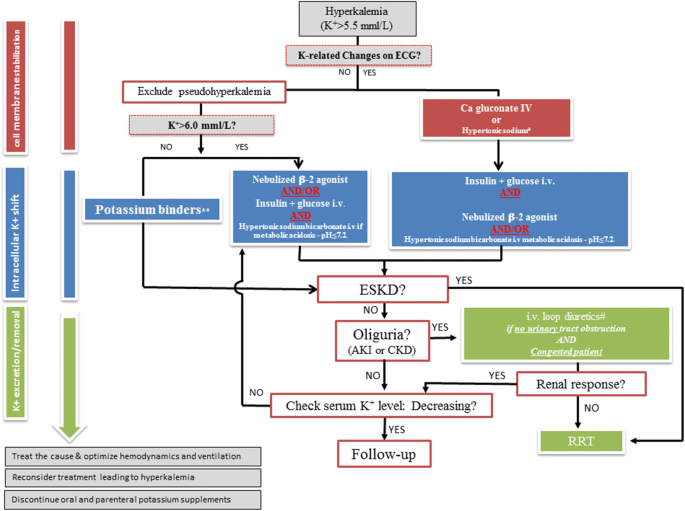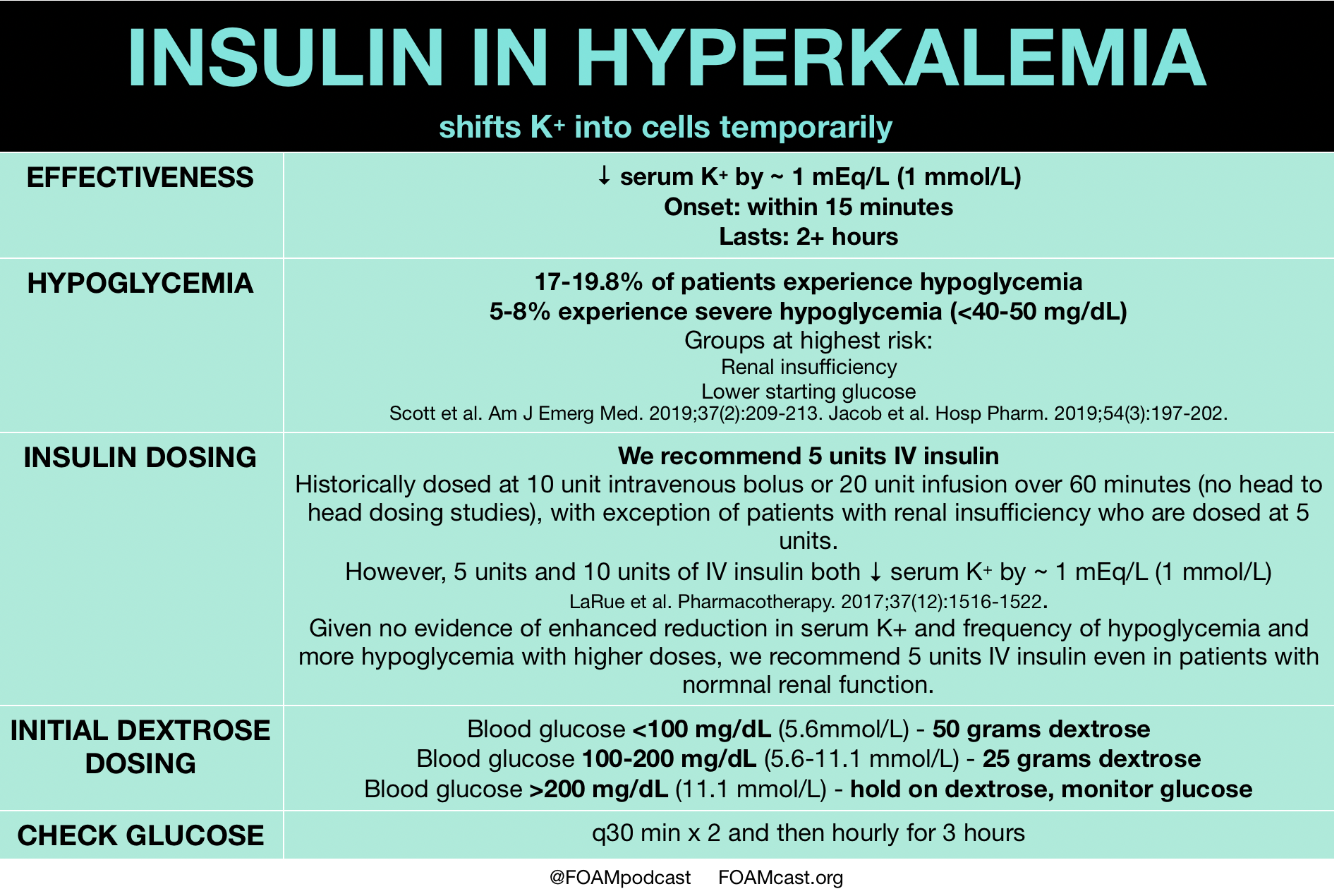Even if hyperkalemia isnt a crisis you still need to get your potassium levels down. Prescribed medications are a primary cause of hyperkalemia in 35-75 of hospitalized patients.
 Management Of Hyperkalemia In The Acutely Ill Patient Annals Of Intensive Care Full Text
Management Of Hyperkalemia In The Acutely Ill Patient Annals Of Intensive Care Full Text
Other treatment options for hyperkalemia include IV calcium insulin sodium bicarbonate albuterol and diuretics.

How to treat hyperkalemia. A diet low in potassium for mild cases. When the kidneys fail the potassium continues to build up and can be fatal if untreated. ECG Changes of Hyperkalemia on on REBEL EM.
Sodium zirconium cyclosilicate Lokelma was approved by the FDA in May 2018 to treat hyperkalemia in adults. Lactated Ringers is safe in hyperkalemia and is superior to NS on PulmCrit. The kidneys help to get rid of excess potassium in a persons body.
Management of severe hyperkalemia in the post-Kayexalate era and Myth-busting. Some medications lower potassium slowly including. Long-term treatment of hyperkalemia may also involve the administration of a nonspecific sodium-cation exchange resin called sodium polystyrene sulfonate Kayexalate.
Acutely lower potassium by giving intravenous insulin with glucose a beta2 agonist by nebulizer or both. Hyperkalemia is a life-threatening condition requiring emergent therapy. After the serum potassium level is.
26 As a result it is a limited form of treatment. The guidelines to treat severe hyperkalemia consist of three essential steps. 24 However sodium polystyrene sulfonate use is linked to systemic toxicities that include sodium retention hypocalcemia hypomagnesemia 25 and colonic necrosis 26 as well as gastrointestinal adverse events such as diarrhea and constipation.
Therapy for hyperkalemia due to potassium retention is ultimately aimed at inducing potassium loss 12. A low-potassium diet can keep your potassium where it needs to be. However hypoglycemia after insulin use is a frequent complication during hyperkalemia management.
IV calcium to ameliorate cardiac toxicity if present Identify and remove sources of potassium intake IV glucose and insulin infusion. Treatment of hyperkalemia may include any of the following measures either singly or in combination. If your hyperkalemia is due to too much acid in your body you may be treated with sodium bicarbonate.
Discontinue medications that increase blood potassium levels. On April 27 th 2020 the US Food and Drug Administration FDA approved a label update in the US for AstraZenecas LOKELMA sodium zirconium cyclosilicate to include a dosing regimen specifically to treat hyperkalemia in patients with end-stage renal disease on chronic hemodialysis. Stabilizing the cardiac membrane to protect against arrhythmias irregular and rapid heartbeat 2.
Patients with hyperkalemia and characteristic ECG changes should be given intravenous calcium gluconate. 2 Recognition and close monitoring of those medications is necessary. 1 High-risk patients are those with underlying renal impairment hypoaldosteronism and taking combination of drugs that can increase potassium level.
Water pills diuretics which rid the body of extra. It preferentially captures potassium in exchange for hydrogen and sodium which reduces. Pay special attention to patients in slow VT and wide-complex bradycardia and consider treating them empirically as hyperkalemia.
EMCrit Podcast 32 Treatment of Severe Hyperkalemia. In patients with severe hyperkalemia treatment is as follows. The simplest way to treat and prevent hyperkalemia is to make changes to your diet that will keep your potassium levels in a healthy range.
You might be asked to avoid specific foods such as asparagus avocado and potatoes as well as some fruits. Total body potassium should usually be lowered with sodium polystyrene sulfonate Kayexalate. In some cases the primary problem is movement of potassium out of the cells even though the total body potassium may be reduced.
The most common cause of an increased potassium levels is kidney failure. If you developed hyperkalemia because you have too much fluid in your blood hypervolemia you may be treated with diuretics. Hyperkalemia has been known to cause almost any dysrhythmia.
Urgent treatment of hyperkalemia includes stabilizing the myocardium to protect against arrhythmias and shifting potassium from the vascular space into the cells. Several classes of medications can induce hyperkalemia by different mechanisms. A new drug patiromer was recently approved for the treatment of hyperkalemia and additional agents are also in development.
One of the drugs used to treat hyperkalemia in kidney patients is LOKELMA. One of these therapies includes insulin with glucose. Determine the Cause of Hyperkalemia First rule out pseudohyperkalemia which accounts for 20 of hyperkalemia lab values.
Hyperkalemia is a potentially life-threatening electrolyte abnormality 123Although there is no internationally agreed upon definition for hyperkalemia the European Resuscitation Council defines hyperkalemia as a plasma level 55 mmolL and severe hyperkalemia as 65 mmolL Hyperkalemia is associated with poor outcomes in many different settings including the acutely ill patient.